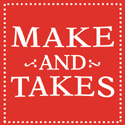Thoughts for a friend who recently posted a link to a science camp:
I know you have a science background and will not be mis-led, but to others, I would suggest, "Proceed with caution."
Many parents are looking for help teaching science because they do not have strong backgrounds in science, themselves. Because such parents do not have science expertise, then it is especially important to identify strengths and weaknesses of the available programs.
I agree that religion and science can co-exist, but I'm concerned by the references to Creation and apologetics which I've seen associated on the websites for some popular science camps. Perhaps there is something I don't understand about this particular camp, but in general, it seems unlikely that these programs can be scientifically sound, when conflating Creationism with science. Beginning with Creationism means that many scientific discoveries cannot be discussed, and the scientific methodology cannot be adequately explored.
Decades ago, I grew up in a scientific community where many if not most of the researchers held religious beliefs, but kept them separate from science in the interest of scientific integrity. In my family and community, we saw no conflict in taking this approach. To the contrary, there is a very great likelihood of arriving at false conclusions when one approaches science without relying solely on well established methods of scientific inquiry. Starting with the Bible as a literal guide will inevitably lead us astray, because those stories were written within the social context and understanding that existed more than 2,000 years ago.
When I lived in Egypt, religious research was focused intensely on discovering what the words of the Bible meant to those who lived in Biblical times. There is a rich new understanding that can be obtained by reading the Bible within its temporal and social context. My own religious teachers advised us to approach the Bible within its context so that we could become closer to God; and to study science with an open mind -- without trying to tie that back to the literal words of the Bible. The Bible was written for that era, and we understand it best by learning more about that era. It follows that we cannot apply the Bible literally to our own era. There may be a metaphorical but not a literal connection, and when we force the second, we lose something of precious value.
It is not my intention to cause offense to anyone, but I feel I must speak up. As someone who has been trained in science, and as wife, daughter, sister, cousin, and niece of scientific researchers, I am so very concerned by many recent misrepresentations of science (and of historic figures) by some in the religious community -- however positive their intentions may be -- that I feel I must overcome my reticence to speak up. Science is not anti-religion, but religions are often anti-science, and it is a red flag to see religion directing the rules of science. Science is objective: it must not be directed by religious belief.
Studying science requires humility, courage, and honesty, qualities which are consistent with those taught by all religions. We may not understand everything right now -- we may feel confused because the Bible's words may not match our understanding of science -- but that does not mean the science is not true. It may simply mean there is more that we don't yet understand. We may see through a glass, darkly -- but we should accept what we find, and not seek to re-interpret those findings simply because it makes us feel uncomfortable.
Please understand that I am not judging anyone for their religious beliefs. Likewise, I hope you will not judge me negatively for speaking up on behalf of scientific integrity, which is not a matter of belief but of evidence, of seeking honest answers to difficult questions, of suspending our expectations in order to find what Mr. Rogers called "the real truth."
.jpg)

No comments:
Post a Comment